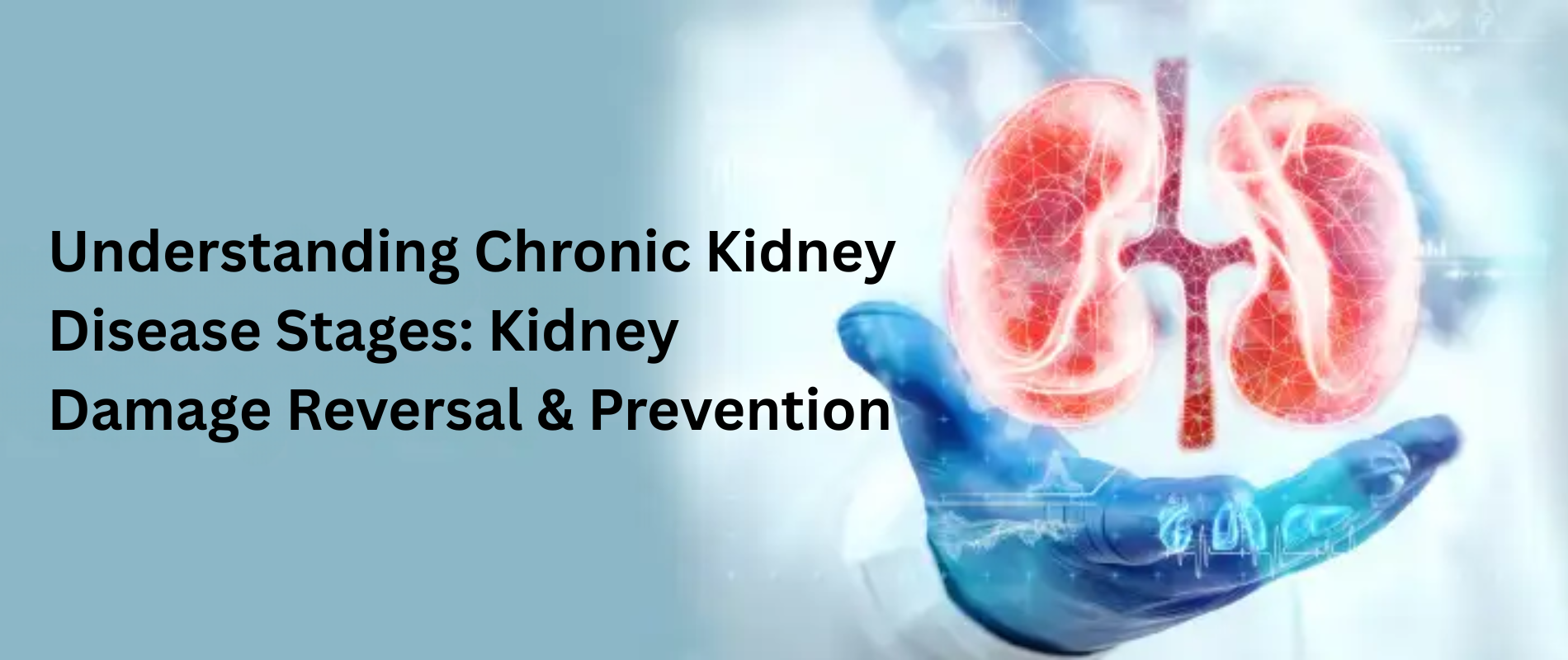
Understanding Chronic Kidney Disease Stages: Kidney Damage Reversal & Prevention By Dr. Kailash N. Singh, Leading Kidney Specialist of Faridabad
Chronic Kidney Disease (CKD) is a progressive condition in which the kidneys gradually lose their ability to function. Often called a “silent disease,” CKD can develop without noticeable symptoms in its early stages. However, with timely diagnosis and proper management, its progression can be slowed—and in some early cases, partially reversed. Dr. Kailash N. Singh, Faridabad’s foremost nephrologist, shares expert insights on CKD stages, potential reversals, and preventive strategies.
What is Chronic Kidney Disease (CKD)?
CKD refers to long-term damage to the kidneys that leads to gradual loss of function over months or years. Common causes include diabetes, high blood pressure, glomerulonephritis, and prolonged use of harmful medications.
The severity of CKD is classified into five stages, based on the Glomerular Filtration Rate (GFR), which measures how efficiently the kidneys filter blood.
Stages of CKD
Stage 1 – Kidney Damage with Normal Function (GFR ≥90):
Kidneys are still functioning well, but early signs of damage such as protein in the urine or abnormal imaging may be present.
Reversal Possible: Yes, with lifestyle adjustments, and proper control of blood pressure and blood sugar.
Stage 2 – Mild Loss of Kidney Function (GFR 60–89):
Slight reduction in kidney function, with possible early signs of stress.
Reversal Possible: Yes, especially if underlying causes like uncontrolled diabetes or hypertension are addressed promptly.
Stage 3 – Moderate Loss of Kidney Function (GFR 30–59):
Noticeable decline in kidney function. Symptoms such as fatigue, swelling, or changes in urination may appear.
Reversal: Full reversal may not be possible, but progression can be significantly slowed with appropriate care.
Stage 4 – Severe Loss of Kidney Function (GFR 15–29):
High risk of kidney failure. Requires close monitoring by a nephrologist.
Reversal: Unlikely, but intensive management can delay the need for dialysis or transplant.
Stage 5 – Kidney Failure (GFR <15):
Kidneys have lost almost all function. Dialysis or kidney transplant becomes necessary.
Reversal: Not possible, but treatment can significantly improve quality of life.
Can Kidney Damage Be Reversed?
Dr. Kailash N. Singh emphasizes that early-stage kidney damage (Stages 1 & 2) can often be reversed or stabilized with proper intervention. Once the kidneys reach moderate to advanced stages, full reversal is difficult, but timely treatment can slow down further decline and preserve remaining kidney function.
Prevention Tips from Dr. Kailash N. Singh
Control Blood Sugar & Blood Pressure: These are the leading causes of CKD.
Regular Kidney Tests: Essential for diabetics, hypertensives, or anyone with a family history of kidney disease.
Stay Hydrated: Proper hydration helps kidneys flush out toxins.
Follow a Kidney-Friendly Diet: Low salt, moderate protein, and minimal processed foods.
Avoid Long-Term Painkiller Use: NSAIDs and unprescribed drugs can harm kidneys.
Maintain a Healthy Weight: Obesity increases the risk of both diabetes and CKD.
Quit Smoking: Smoking worsens kidney function and overall circulation.
Chronic Kidney Disease is manageable, especially when detected early. Understanding its stages and acting proactively can preserve kidney health—and life. Dr. Kailash N. Singh, renowned kidney specialist in Faridabad, encourages everyone at risk to schedule regular check-ups and adopt kidney-friendly habits.
